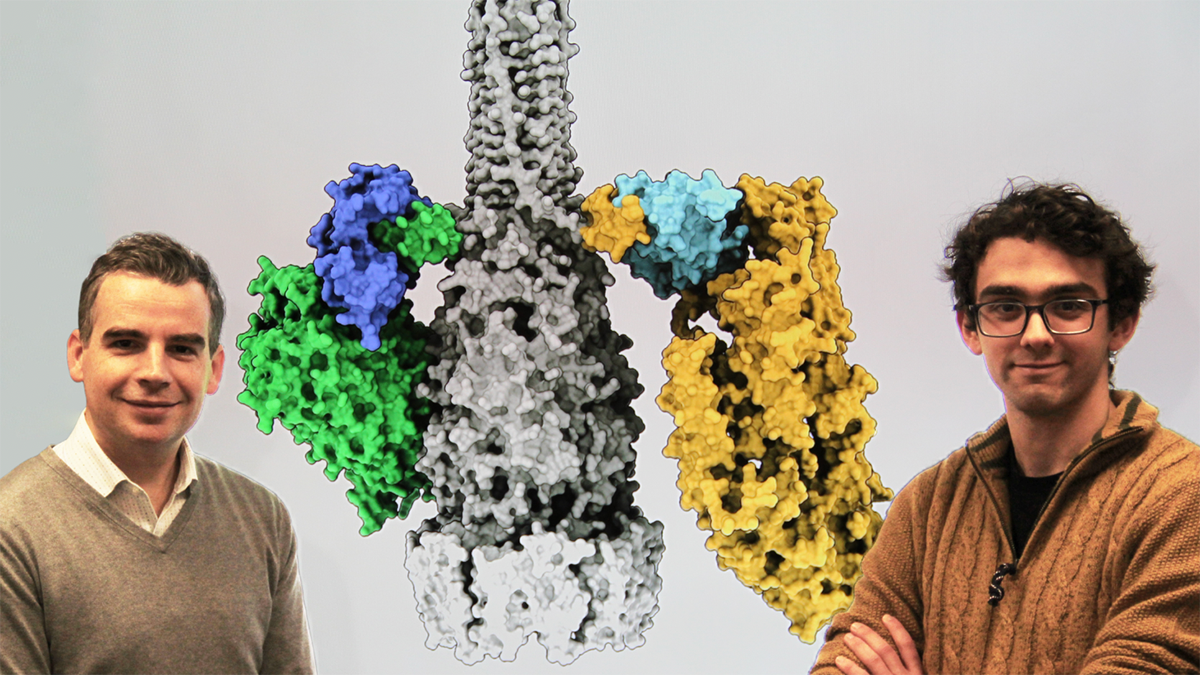High-protein diet, 10k daily steps during pregnancy benefits child’s brain development, study shows

It’s no surprise that a balanced diet and regular exercise are important during pregnancy, but new research out of McMaster University shows that optimizing diet and exercise while expecting can not only help improve maternal health, but can have long-term benefits for the cognitive, emotional, and behavioural development of the child.
The research found that children whose mothers ate a high-protein diet and aimed for 10,000 steps daily during pregnancy showed a significant reduction in emotional and behavioural problems, better impulse control, overall cognitive function, nervous system functioning and a longer attention span.
The research, published Oct. 30, 2024 in the American Journal of Clinical Nutrition, underscores the profound impact of maternal health practices on the long-term well-being of children. While previous research interventions aimed at improving offspring brain development have examined the impact of single nutrients or exercise alone, this study uniquely examines the combined effects of a diet and exercise intervention during pregnancy to demonstrate the positive, long-term impact on the neurodevelopment of offspring.

“Most pregnant people in North America consume a diet high in sugar and saturated fats, and fewer than 15 per cent of them meet recommendations for physical activity. While these factors increase offspring risk for psychiatric and cognitive problems, results from previous human clinical trials intervening on prenatal nutrition and/or exercise have failed to produce benefits for offspring,” says Ryan Van Lieshout, senior author of the paper and professor of the Department of Psychiatry & Behavioural Neurosciences at McMaster University.
“This is the first study in the world to show that intervening on maternal diet and exercise during pregnancy can improve multiple aspects of offspring emotion, behavioural and brain development with benefits up to two years of age,” adds Van Lieshout, the Canada Research Chair in Perinatal Mental Health.
The study recruited over 240 pregnant people 18 years old and older, between 12-17 weeks gestation. Participants were randomized to receive the study’s diet and exercise intervention along with their usual pregnancy care, or their usual pregnancy care alone. To assess the neurodevelopment of offspring, parents submitted reports and children were monitored by professionals for inhibitory control, attention, empathy, and high-frequency heart rate variability.
Participants in the intervention group adhered to the intervention from 12-17 weeks gestation until the end of pregnancy. These participants ate an individualized high-protein diet – 25 per cent of their daily caloric intake – of which at least 50 per cent came from four to six servings of low-fat, high-protein dairy products, including cottage cheese, Greek yogurt, and low-fat milk.
Those same participants also participated in a walking program three to four times a week for 25 minutes, increasing in duration by two minutes daily until a maximum of 40 minutes was reached. Participants were encouraged to achieve a goal of 10,000 steps daily, which was tracked using a pedometer.

Improvements in multiple aspects of emotional regulation were found in the children from the intervention group at 22 months of age. Parents who were part of the diet and exercise intervention group reported significantly fewer cognitive, emotional, and behavioural problems in their children relative to those reported in the pregnancy care as usual group. Those were also found by professionals to be more adaptative and have a longer attention span compared to the non-intervention children.
“This study highlights the potential that maternal/birthing parent diet and exercise interventions may have on improving offspring brain development. However, larger trials that include more diverse samples are needed,” says John Krzeczkowski, first author of the paper who completed this work during his PhD in the Neuroscience Graduate Program at McMaster. Krzeczkowski is now an assistant professor, Faculty of Applied Health Sciences at Brock University.
The authors acknowledge that the context of the participants – they were mainly married, educated, mentally healthy, and all had access to universal healthcare – put them at a socioeconomic advantage.
The study was funded by the Canadian Institutes of Health Research (CIHR).
ResearchRelated News
News Listing

Department of Medicine ➚
Pain to progress: An impactful history of lupus research and care at McMaster
Collaborations & Partnerships, Education, Research
2 days ago

Brighter World ➚
McMaster research in 2024: From AI innovation to breakthroughs in health care
Research
5 days ago

